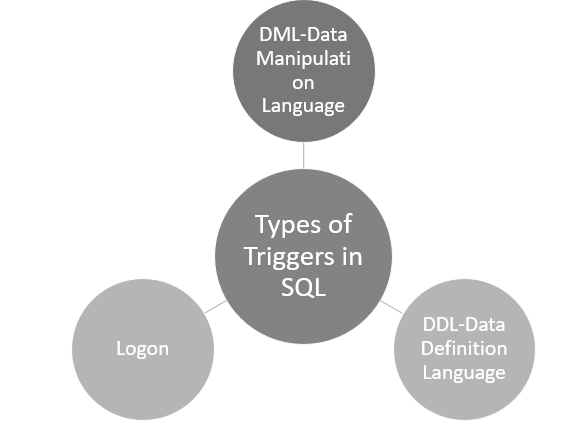Going through a comprehensive list of SQL interview questions for developers can help you outshine in the most challenging technical interview rounds at some major organizations, including Facebook, Microsoft, Amazon, Cognizant, Dell, Accenture, JP Morgan, and Stack Overflow.
Expert’s Quote:
“Designing a database schema is like composing a symphony. Each table, each relationship should play its part seamlessly to create a harmonious and efficient data symphony.”
–Michael Stonebraker
(Database System Architect)
A career in SQL is quite lucrative, so the time you invest today to learn and prepare the crucial SQL topics would be well worth it. You must begin your preparation with basic SQL concepts and move on to the advanced SQL questions to crack interviews at FAANG+ companies. From strategizing about how to tackle SQL interview questions to understanding the vital concepts, here is all covered. Read on to kickstart your interview prep.
If you are preparing for a tech interview, check out our technical interview checklist, interview questions page, and salary negotiation e-book to get interview-ready!
Having trained over 11,000 software engineers, we know what it takes to crack the toughest tech interviews. Our alums consistently land offers from FAANG+ companies. The highest ever offer received by an IK alum is a whopping $1.267 Million!
At IK, you get the unique opportunity to learn from expert instructors who are hiring managers and tech leads at Google, Facebook, Apple, and other top Silicon Valley tech companies.
Want to nail your next tech interview? Sign up for our FREE Webinar.
Here's what we'll cover:
- What Do Top Companies Look for in a SQL Developer?
- Interview Questions and Answers for SQL Developers
- T SQL Interview Question for Developers
- SQL Query Interview Questions for Java Developers
- PL/SQL Interview Questions for Developers
- SQL Server Interview Questions for Developers
- Prep Tips to Crack SQL Interview Questions
- FAQs on SQL Interview Questions for Developers
What Do Top Companies Look for in a SQL Developer?
SQL is among the most desired skills in the market. There is an expanding dependence on data and information in top companies, and SQL skills guarantee promising career opportunities. A recruiter looks for the following skills in a SQL developer:
- Experience in SQL Server, Oracle Database, PL/SQL.
- Expertise in writing complex SQL queries, stored procedures, blocks, and triggers.
- Extensive knowledge in software programming.
- Experience in JAVA and .NET is an added advantage.
- Ability to design database systems for storage and access information related to businesses.
- If you are applying for SQL Server Database Administrator positions, you must know about data modeling.
- Expertise in incorporating a high level of technical know-how to make the data safe and secure
- Proficiency in preventing unauthorized access to these systems may put sensitive data and the business's reputation at risk.
- Soft skills include communication, critical thinking, problem-solving, teamwork, and collaboration.

If you are preparing for a software engineer or data engineer job at Amazon or Facebook, go through the Amazon SQL interview questions and Facebook SQL interview questions to get interview-ready!
Interview Questions and Answers for SQL Developers
You must spend time planning carefully on what skills and interview answers will resonate with your interviewers most. The following SQL interview questions for developers will help you understand what questions you can anticipate in your upcoming interview.
Q1. How would you find duplicate records in SQL?
You can find duplicate records using the following SQL functions:
- GROUP BY function to group all rows by the column/ columns you want to check for duplicate values.
- RANK function: It returns a unique rank number for every distinct row to a specified column value. It starts at 1 for the first row in every partition, with the same rank for duplicate values, leaving gaps between the ranks. You can check duplicate values wherever the gaps appear in the sequence.
Recommended reading: Top Advanced SQL Interview Questions and Answers.
Q2. What are the various types of SQL Joins?
Joins in SQL are of the following types:
- Right Join: It concatenates all rows from the right table and the matching left table rows.
- Left Join: It concatenates all rows from the left table and the corresponding right table rows.
- Inner Join: It selects and returns records with matching values in both tables.
- Full Join: It returns all records of both tables if there is a matching record in either left or the right table.
- Self Join: It is a regular join, and it simply joins a table to itself. The table is treated similarly to two different tables.
- Cartesian Join: It is also called a cross join as it returns the rows in the first table by multiplying them with the second table rows.

Recommended Reading: Top SQL Joins Interview Questions and Answers you should practice.
Q3. What is a trigger in SQL?
A trigger in SQL is a type of stored procedure. It automatically runs as an event occurs in the database server. An SQL server has the following three types of triggers:
- DML (Data Manipulation Language) triggers: It runs when you try to modify data through DML events such as Insert, Update, or Delete statements.
- DDL (Data Definition Language) triggers: It runs in response to DDL events such as Create, Drop, Alter, Grant, Denay, and Revoke.
- Logon triggers: It runs in response to a LOGON event. It is fired after completing the authentication phase of logging in but before the user session gets established.

Read the 50+ SQL Interview Questions and tips on how to crack them.
Q4. What is the difference between static SQL and dynamic SQL?
The following table enumerates the key differences between static and dynamic SQL:
Q5. What is Oracle SQL Developer used for?
Oracle SQL Developer is a free access IDE (Integrated Development Environment) that allows you to work with SQL in Oracle databases. It is written in Java. This graphical tool enhances productivity while simplifying database development tasks. You can use Oracle SQL Developer for browsing database objects, running SQL statements, editing and debugging PL/SQL statements, and more.
T SQL Interview Questions
T-SQL or Transact Structured Query Language is an extension of SQL functionality. Microsoft SQL Server and Sybase ASE support it. You should be prepared to answer SQL interview questions for developers on the differences between SQL and TSQL.
Q1. What keyword would you use to select the top ?10 number rows of SQL and TSQL?
In SQL, you would use the LIMIT keyword, while in T SQL, you would use the TOP keyword to select the top ten rows.
Q2. What do you understand about stored procedures in T SQL?
Stored procedures in T SQL are collection statements stored within the database. They are prepared T SQL code that you can save and reuse repeatedly. They encapsulate oft-used queries, including conditional statements, loops, and other programming features.
Stored procedures hide direct T SQL queries from the code and improve the performance of database operations like deleting, selecting, and updating data. They are similar to functions in high-level programming languages.
Q3. How would you define a local variable using T-SQL?
The DECLARE statement allows you to define a local variable using TSQL. The name of the local variable begins with "@" as the first character. For example, integer CNT will be written as follows:
DECLARE @CNT INT
Q4. What is the role of the following T-SQL commands:
- IDENT_CURRENT
- IDENT_INCR
IDENT_CURRENT command returns the last identity value created for a specific view or table. The last identity value produced can be for any session and any scope.
IDENT_INCR command returns the increment value stated in forming an identity column in a table or view.
Q5. How can you write and submit T SQL statements to the database engine?
T SQL statements can be written and submitted to the Database engine as follows:
- By connecting from an application
- By using the sqlcmd utility
- By using the SQL Server Management Studio
Does your job require T SQL skills? Check the top T SQL Interview Questions here.
SQL Query Interview Questions for Java Developers
You should be prepared well for SQL query interview questions. The interviewer can ask you to create SQL queries, or they can ask SQL query questions based on tabular data provided. The following SQL interview questions for developers will help you practice the most frequently asked questions.
- Write a query to estimate the average of the numbers that a user enters. Also, stop entering numbers as the user enters 1.
- Write a SQL query to include the number of Mondays between the two given dates.
- Write a SQL program to find whether a given string is a palindrome.
- Write a SQL query to enlist employee names who belong to the HR department.
- Write a query to return the sum of the salaries of all female employees in the Admin department.
Check more of these SQL Query Interview Questions for practice.
PL/SQL Interview Questions
- How does SQL differ from PL/SQL?
- What is the difference between the implicit cursor and explicit cursor in PL/SQL?
- How would you write comments in a PL/SQL code?
- Explain the architecture of PL/SQL.
- How would you display the sum of the first ten odd numbers using PL/SQL?
- How would you compute an employee's monthly salary based on the annual salary?
- Write an example of using a host variable in a PL/SQL block.
Practice some more PL/SQL interview questions for experienced professionals.
SQL Server Interview Questions for Developers
- What are the steps to create a database in an SQL server?
- How would you create a stored procedure using SQL Server?
- How would you store videos inside the SQL Server table?
- How would you delete a table in the SQL server?
- What do you understand about relationships in SQL Server databases?
- How is a primary key different from a foreign key?
- What are SQL constraints?
Take a look at some more SQL Server Interview Questions here.
Prep Tips to Crack SQL Interview Questions
The following tips will help you nail SQL interview questions and land your dream job.
Prep Tips for SQL Query Questions
- Identify the required information: Often, you will not require all the columns present in the given data table. It is essential to identify the columns you require and concentrate on them.
- Solve the subquery first: If the given question has subqueries, start by solving them. When you move on to the main query, try to break down the given problem into subparts and solve it one step at a time. It makes your task much easier and quicker.
- Keep your final answer in mind: When you imagine your final output and keep that in mind, it helps you think about the possible logical ways to solve the query.
- Format it right: Whether you are writing queries on a whiteboard or sharing your screen with the recruiter, you must opt for clear formatting to make your code appear neat and understandable.
- Say what you are thinking: It is important to explain and talk to your interviewer as it helps them understand your approach to a problem, and they can also give some tips if you get stuck somewhere.

Prep Tips for Theoretical Questions
- Share from your experience: Your answers to the theoretical questions need not always be straightforward. If the question allows, you must incorporate some relevant details from your past experiences. Interviewers are looking for skilled individuals with strong relevant skills.
- Be prepared for scenario-based questions: Recruiters focus on your answers to scenario-based questions for assessing your SQL skills. You should be prepared to apply SQL Joins, PL/SQL commands, and operations on tables. You must provide logical and well-thought-out answers. Take the time and convey to the interviewer that you recognize the issue and how you would work to resolve it.
- Exude confidence in answering behavioral questions: Your soft skills are valuable to the company, and thus, they keep maximum behavioral questions in the final rounds of the interview. You must ensure that you answer the behavioral questions right. Learn how to answer the most commonly asked behavioral interview questions.

FAQs on SQL Interview Questions for Developers
Q1. How can I ace SQL interview questions for developers at FAANG companies?
With strategic preparation, you can ace the most challenging SQL interview questions for developers. You must begin by brushing up on the crucial SQL concepts, including DDL, DML, DCL, TCL keywords, SQL constraints, joins, indexes, and transactions.
Once you are clear on all the concepts, you must practice the most anticipated SQL interview questions for developers to assess your preparation. You must practice SQL query problems for coding interview rounds. You can also enroll for a few mock interviews to boost your confidence and get familiar with the standard interview process.
Q2. What are the five basic types of SQL commands?
The five basic types of SQL commands are Data Definition Language (DDL), Data Manipulation Language (DML), Data Control Language (DCL), Transaction Control Language (TCL), and Data Query Language (DQL).
Q3. What SQL concepts should I know for an entry-level SQL developer job interview?
If you are interviewing for entry-level SQL developer positions, you should be well-versed in the following concepts: SQL views, joins, keys, normalization of a database, transactions in SQL, subqueries, sequences, cloning tables, and temporary tables in SQL.
Q4. What are some advanced SQL concepts?
If you are applying for senior positions, you should be thorough with advanced SQL concepts: functions, hierarchical queries, stored procedures, triggers, indices, normal forms, primary and foreign keys, transactions, table constraints, CASE WHEN statements, and data time manipulation.
Q5. What is the average salary for a SQL developer in the US?
The average SQL Developer's base salary is $1,02,887 per annum in the US and a $6,749 cash bonus per year (Source: Glassdoor). The salary varies from company to company, such as Facebook offers an average base salary of $178,000 per year, and Microsoft offers $104,438 per year.
Gear Up for Your Next Tech Interview
Preparing for technical interviews, especially the challenging ones, steers you to become a better software professional with improved coding, problem-solving, and behavioral skills. You become more confident at taking and cracking interviews.
We've trained thousands of coding engineers, software developers, and data scientists to land dream offers at the biggest companies, including Google, Facebook, Amazon, Apple, Microsoft, and Netflix. Check out some reviews to learn more.
If you've put in the effort, you must know that you've gained an incredible experience in your professional life, irrespective of the results. So, make sure that you pat yourself on the back.
Sign up now to uplevel your career!







.svg)

.svg)


.png)






